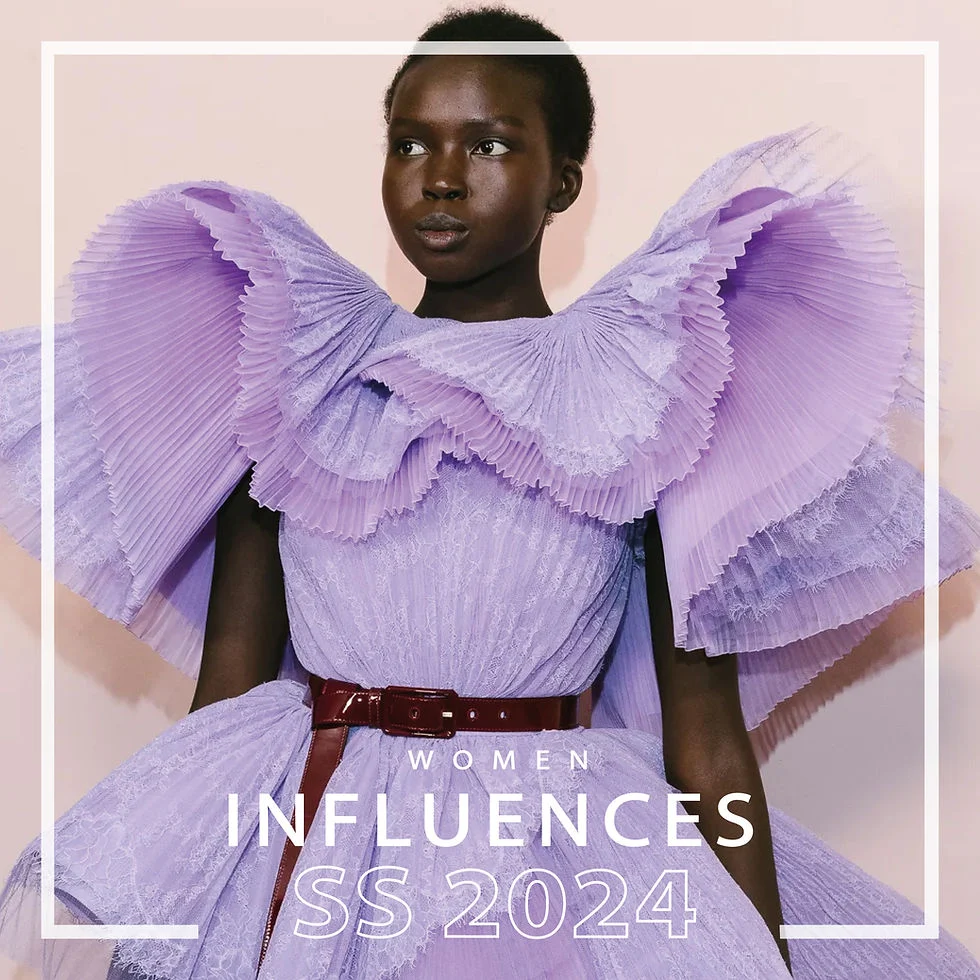The intersection of artificial intelligence and fashion is revolutionizing the industry in unprecedented ways. In our article, “AI In Fashion: How Technology Is Shaping Trends,” we delve into the transformative impact of AI technologies on fashion design, production, and consumer engagement. From predictive analytics that forecast trends to AI-driven design tools that enhance creativity, the integration of technology is reshaping how fashion brands operate and connect with their audiences.
As we explore the various facets of AI in fashion, you will discover how machine learning algorithms are being utilized to analyze consumer preferences and predict future trends. We will also discuss the role of virtual fitting rooms and augmented reality in enhancing the shopping experience, allowing customers to visualize products before making a purchase. Furthermore, we will highlight innovative case studies of fashion brands that have successfully adopted AI technologies to stay ahead in a competitive market.
Join us on this exciting journey through the world of AI in fashion, where technology not only influences trends but also redefines the very essence of style and consumer interaction. Whether you are a fashion enthusiast, a tech-savvy individual, or a professional in the industry, this article promises to provide valuable insights and inspire you to think differently about the future of fashion. Read on to uncover the fascinating ways AI is shaping the trends of tomorrow!
As technology continues to evolve, its impact on various industries becomes increasingly profound. The fashion industry is no exception, as artificial intelligence (AI) is reshaping how trends are created, marketed, and consumed. This article explores the multifaceted ways in which AI is influencing the fashion landscape.
Predictive Analytics in Trend Forecasting
Predictive analytics is revolutionizing how fashion brands anticipate trends. By analyzing vast amounts of data from social media, e-commerce platforms, and consumer behavior, AI algorithms can identify emerging styles and preferences. This data-driven approach allows brands to stay ahead of the curve, ensuring they produce collections that resonate with consumers.
Moreover, predictive analytics can help brands optimize their inventory management. By understanding which styles are likely to be popular, companies can reduce overproduction and minimize waste, aligning with sustainable fashion practices. This not only benefits the environment but also enhances profitability.
Personalized Shopping Experiences
AI is transforming the shopping experience by offering personalized recommendations to consumers. Through machine learning algorithms, fashion retailers can analyze individual shopping habits and preferences, providing tailored suggestions that enhance customer satisfaction. This level of personalization fosters brand loyalty and encourages repeat purchases.
Additionally, virtual fitting rooms powered by AI allow customers to try on clothes digitally, reducing the likelihood of returns. This technology not only improves the shopping experience but also helps retailers understand sizing issues and customer preferences more effectively.
AI-Driven Design Processes
Fashion design is becoming increasingly influenced by AI, with designers leveraging technology to create innovative collections. AI tools can analyze current trends and consumer preferences, assisting designers in generating new ideas and concepts. This collaboration between human creativity and machine intelligence leads to unique and market-relevant designs.
Furthermore, AI can streamline the design process by automating repetitive tasks, allowing designers to focus on more creative aspects. This efficiency not only accelerates the production timeline but also enhances the overall quality of the final product.
Sustainable Fashion through AI
Sustainability is a growing concern in the fashion industry, and AI is playing a crucial role in promoting eco-friendly practices. By utilizing AI to analyze supply chains, brands can identify inefficiencies and areas for improvement. This data-driven approach enables companies to make informed decisions that reduce their environmental impact.
Additionally, AI can assist in the development of sustainable materials by analyzing the properties of various fabrics and suggesting alternatives that are both eco-friendly and stylish. This innovation is essential for the future of fashion, as consumers increasingly demand sustainable options.
Enhancing Marketing Strategies with AI
AI is transforming marketing strategies in the fashion industry by enabling brands to create targeted campaigns. By analyzing consumer data, AI can identify specific demographics and tailor marketing messages accordingly. This precision in targeting increases the effectiveness of advertising efforts and maximizes return on investment.
Moreover, AI-powered chatbots are enhancing customer service by providing instant support and personalized interactions. These chatbots can answer queries, recommend products, and even assist in the purchasing process, creating a seamless shopping experience for consumers.
The Future of Fashion: AI and Virtual Reality
The integration of AI with virtual reality (VR) is set to redefine the fashion industry. Virtual fashion shows and immersive shopping experiences are becoming more prevalent, allowing consumers to engage with brands in innovative ways. AI can enhance these experiences by creating realistic virtual environments and personalized avatars for users.
As technology continues to advance, the possibilities for AI in fashion are limitless. The combination of AI and VR not only enhances consumer engagement but also opens new avenues for creativity and expression within the fashion industry.
| Aspect | Description |
|---|---|
| Trend Forecasting | AI algorithms analyze social media, fashion shows, and consumer behavior to predict upcoming trends, allowing brands to stay ahead of the curve. |
| Personalization | AI enables personalized shopping experiences by recommending products based on individual preferences and past purchases, enhancing customer satisfaction. |
| Supply Chain Optimization | AI tools streamline supply chain processes by predicting demand, managing inventory, and reducing waste, leading to more efficient operations. |
| Virtual Try-Ons | Augmented reality (AR) and AI technologies allow customers to virtually try on clothes, improving the online shopping experience and reducing return rates. |
| Design Assistance | AI can assist designers by generating new patterns and styles based on existing data, fostering creativity and innovation in fashion design. |
| Sustainability | AI helps brands adopt sustainable practices by analyzing materials and production methods, promoting eco-friendly choices in fashion. |
| Customer Insights | Data analytics powered by AI provides brands with deep insights into customer preferences and behaviors, enabling more targeted marketing strategies. |



